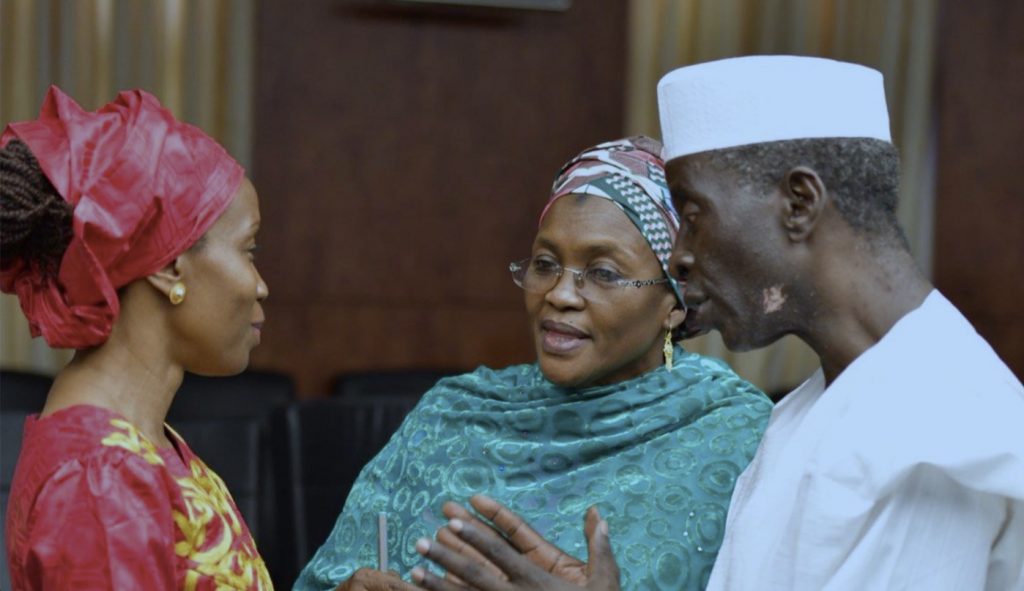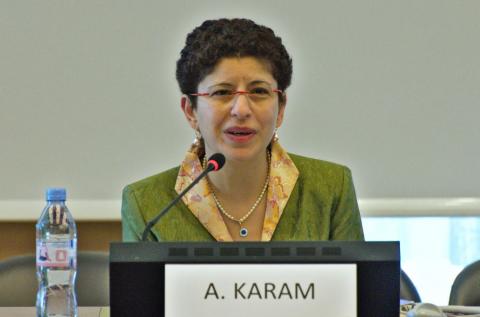The United Nations Task Force on Engaging Faith-based Actors recently released its annual report. Here Religion & Diplomacy learns more about the work and vision of the Task Force from its Coordinator, Azza Karam, a senior advisor at UNFPA.

R&D: In a nutshell, what is the UN Taskforce on Religion and why did it form?
Karam: The UN Interagency Task Force on Religion was founded to inform and support UN system actors as to the ‘why’, ‘how’, ‘who’, and ‘what’ of religion, and engagement with religious actors, around the UN’s main areas of work: peace and security, human rights, and sustainable development.
R&D: The report details a wide array of events, initiatives, and projects. What’s the key takeaway message from this report?
Karam: Precisely how wide, varied, complicated and yet necessary, the engagements with religion, and religious actors, looks like/is. This is a report to document some of what the world’s largest multilateral entity is doing with the worlds’ largest and most diverse constituency. It is not a report to convey any one message.
R&D: What new initiative or project in the report are you particularly proud of or excited about?
Karam: Not one particular initiative since each UN entity has a diverse mandate. What I am excited—and worried about—is the plethora of such initiatives. Since 2000, religious engagement (in diverse forms) has become the ‘normal’ for many inside the UN system. But the question is—or should always be—are we wise about the how and why of this?

Dr. Azza Karam serves as a Senior Advisor on Culture at UNFPA and Convenor of the UN Interagency Task Force on Religion; and is a Professor of Religion and Development at the Free University of Amsterdam.
Photo credit: Geneva Centre for Human Rights Advancement and Global Dialogue
R&D: Have there been regions or topics where engagement with religious groups has been particularly challenging?
Karam: Working with religious actors on all aspects of human rights carries both challenges and opportunities. Precisely because gender equality and women’s empowerment are the most stubborn litmus test of religious’ buy-in to all human rights, these are also the areas in which seeing faith-based partners advance can be the most awe-inspiring. I know, beyond a shadow of doubt, in my personal and professional gut, that when faith actors rally together for gender justice—across religious, regional and ethnic lines—that is precisely when “the arc of the moral universe bends towards justice” (in the words of Martin Luther King Jr).
To seek to work with religious actors around the least common denominator is necessary, but by no means sufficient. To seek to work with religious actors to question our own approaches and transform respective worldviews—therein lies the purpose of transformational leadership, i.e. what our world is hungry for in these times.
R&D: The report refers many times to “religious leaders” but also more generally to “religious actors” and “faith-based actors.” Can you tell us what’s behind that terminology?
Karam: As with all other non-religious domains, within the UN entities we tend to use different terms. There are many massive UN system entities some of whose work with faith actors is being conveyed, so we need to make room for the fact that people use different references. And that is one of our challenges which is not going to disappear, not because we suffer from lack of knowledge, but also because the realm of ‘religion’ is so vast that per definition, we will see—and work with—different parts of it.
Some UN entities deem that ‘religion’ equals ‘religious leaders’. Invariably, those are the entities, or offices, with little operational engagement. Those UN agencies with more programmatic engagement in country, have learned over the years to broaden the repertoire of religious actors they deal with, to include religious leaders, religious institutions (churches, mosques, synagogues, etc.) as well as faith-based and faith-inspired civil society entities such as NGOs.
R&D: Within some religious communities the UN is viewed with great suspicion. Why does that suspicion persist and what more can be done to address it?
Karam: The suspicions persist on all sides. And they will. No partnership anywhere in the world does not carry at least a seed of suspicion in it. The point is not to cover or pretend it is not there and that we are all lovey dovey. That would be a recipe for disaster. Instead, as those of us who work on gender-related issues have learned, we need to face the suspicions, but do so with respect and grace. That way we can work together to get over many of the causes around it.
Often, the cause of suspicion is a lack of understanding. The UN is a big entity (over 60 offices, funds, mechanisms, etc.). Yet the realms of religion dwarf all of us. At the same time, we are living in times where power brokers communicate in soundbites (if not tweets), and this only complicates how we understand. So we have to be committed to questioning what we think we know, and few of us have that bandwidth (some call it a luxury). But how can we inspire and transform if we are always in a hurry to work only with the like-minded?
R&D: Last year the Taskforce launched at new initiative called the Kofi Annan Faith Briefing. How will the briefings contribute to the UN’s engagement with religious actors?
Karam: Goal 17 of the SDGs notes that a successful sustainable development agenda requires partnerships between governments, the private sector, and civil society. These inclusive partnerships built upon principles and values, a shared vision, and shared goals that place people and the planet at the centre, are needed at the global, regional, national, and local level.
So the Kofi Annan Briefings are a space carved out inside the UN infrastructure to give voice to the faith-based and faith-inspired actors to communicate, in their own words, with the governments, with the secular civil society, and with the UN system. And it’s a space for all to hold one another accountable through witnessing one another’s work. Given the conviction that we have much to learn, and given that the UN is a convenor par excellence—the largest such anywhere in the world—we need to ensure we have the spaces to actively listen and convene all constituencies.